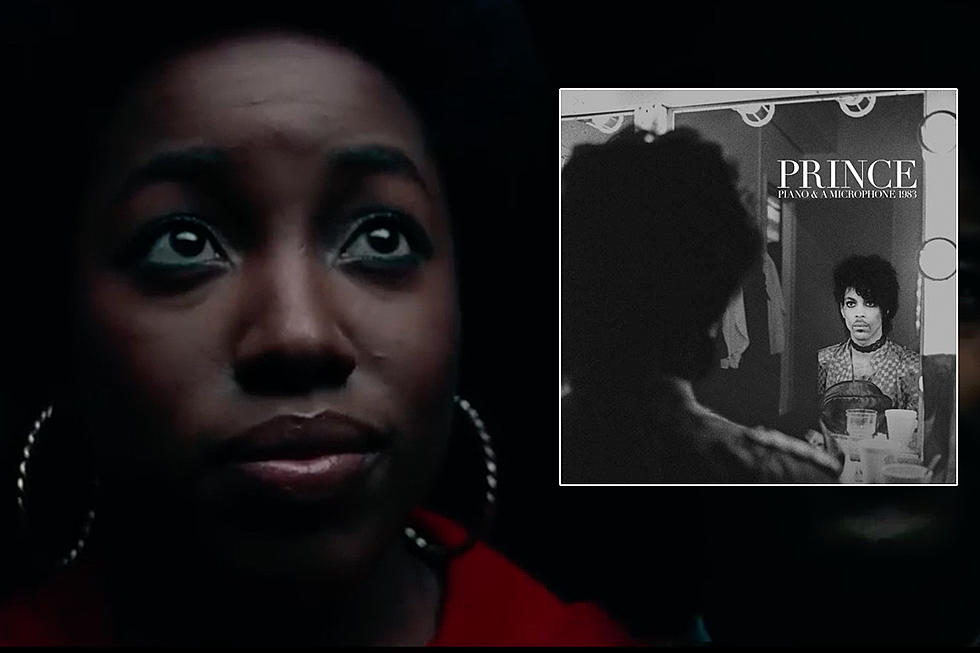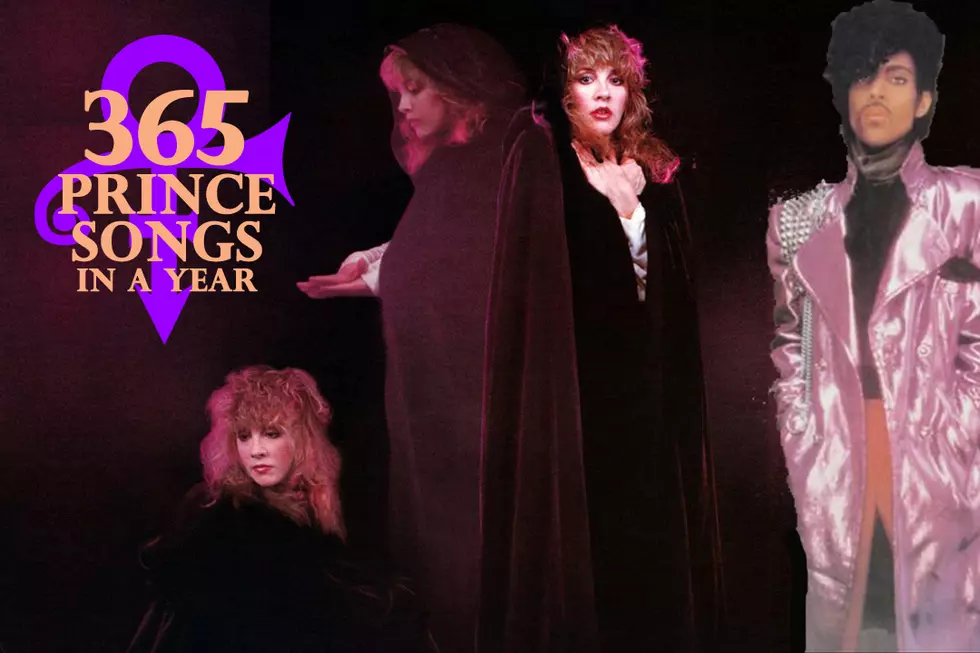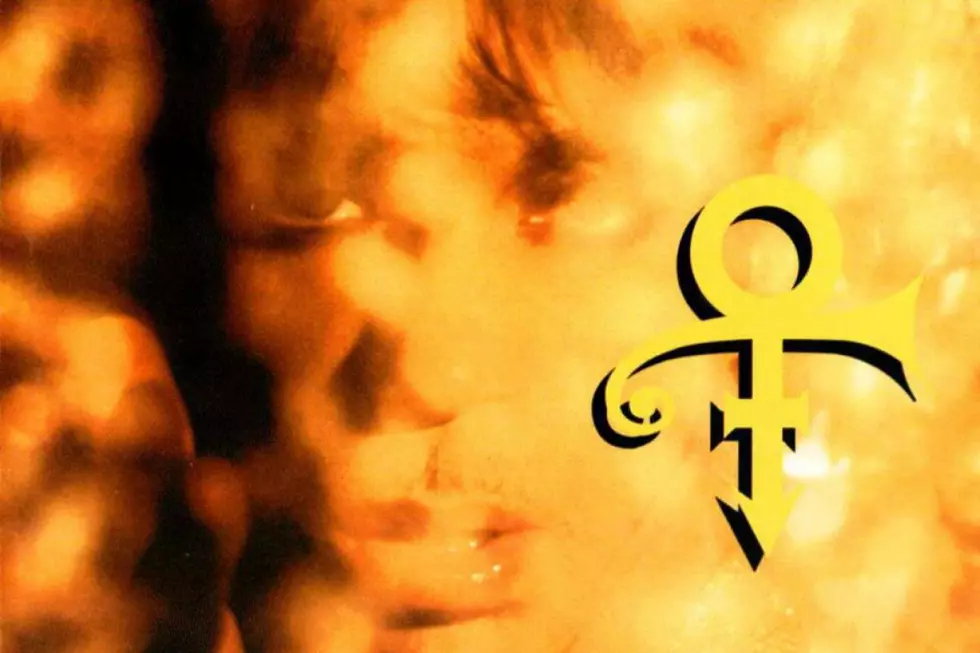
Prince Explores His Gospel Roots With ‘Mary Don’t You Weep’
Prince’s rendition of "Mary Don’t You Weep," the first single from the artist’s first posthumous album, is moving enough when played in isolation, but it has even more power at the end of Spike Lee’s BlacKkKlansman, which closes with a montage of horrifying real-world footage from the disgusting and deadly 2017 neo-Nazi rally in Charlottesville.
Upon the film’s release, Lee suggested that Prince wanted him to have "Mary Don’t You Weep" from beyond the grave. "I invited Troy [Carter, Prince estate advisor] to a private screening," Lee told Rolling Stone. "And after, he said, 'Spike, I got the song.' ... Prince wanted me to have that song, I don’t care what nobody says. My brother Prince wanted me to have that song. For this film. There’s no other explanation to me. This cassette is in the back of the vaults. In Paisley Park. And all of a sudden, out of nowhere, it’s discovered? Nah-ah. That ain’t an accident!"
The moment it came out of the Paisley Park vault, "Mary Don’t You Weep" earned its position as perhaps the purest expression of Prince’s gospel influence, and an important stepping stone on his artistic path.
With its roots in the pre-Civil War era, "Mary Don’t You Weep" is one of America’s most enduring spirituals. Like many songs originating on slave plantations, "Mary Don’t You Weep" is cautiously optimistic. Enslaved African Americans couldn’t sing directly about freedom or resistance while they were on the plantations, but they could explore religious themes and relate them to their oppression in subtle ways.
The lyric "Pharaoh's army got drownded," repeated throughout the traditional version, connects the singer’s struggle for freedom to the Israelites’ escape from the Egyptians in the Old Testament, while other versions include lines which almost transparently relate to a coming revolution, like "One of these nights about 12 o'clock / This old world is gonna reel and rock."
Passed down through the generations for decades, the first recorded version of the song is thought to be by the Fisk University Jubilee Singers from 1915, titled "O Mary Don’t You Weep, Don’t You Mourn." In sharp contrast to Prince, the Fisk Jubilee Singers gave the song a jaunty rhythm and quick tempo. Their tight harmonies prefigure the song’s eventual status as a gospel classic, and their a cappella performance anticipates Prince’s own stripped-down version.
Since then, the song has been recorded by a huge number of artists. A 1959 version by the Swan Silvertones, this time titled "Oh, Mary Don’t You Weep," was added to the U.S. Library of Congress’s National Registry in 2014. The Swan Silvertones performed the song with a guitar accompaniment, in an arrangement that shares its DNA with early rock ‘n’ roll. The Caravans released a hit version one year earlier, incorporating classic gospel trimmings like a wailing organ and call-and-response vocals.
Arguably the most widely-listened version was released by another musical icon. Aretha Franklin’s 1972 double-platinum live album Amazing Grace opens with a supremely soulful rendition of "Mary, Don’t You Weep." Much slower than most previous recordings, Franklin’s version builds over seven minutes, with a full gospel choir on backing vocals, and an increasingly energetic audience expressing its excitement.
Coincidentally, a line improvised on the Swan Silvertones' rendition by Claude Jeter, "I'll be a bridge over deep water if you trust in my name," served as Paul Simon's inspiration for "Bridge Over Troubled Water," which Franklin took to No. 6 in 1971 in a version that honored its gospel roots. Jeter wasn't credited as a writer, although Simon later gave him a check for $1,000.
More than 10 years after Aretha Franklin, Prince sat down at a piano to play "Mary Don’t You Weep" on a rehearsal tape that made up Piano and a Microphone 1983. His take comes near the middle of the album, right after another cover (Joni Mitchell’s "A Case of You," which Prince eventually released on the 2001 studio album One Nite Alone), and before a very early recording of Sign ‘O’ the Times track "Strange Relationship." The embryonic "Strange Relationship" actually bleeds into "Mary Don’t You Weep" — Prince sings its opening lyric, "I guess you know me well / I don’t like winter," twice during the song.
It’s not just the "Strange Relationship" lines that stray from the template. Prince plays fast and loose with the song’s lyrics generally. There’s no mention of Pharaoh's army, which dominates the refrain of most traditional renditions. Instead, Prince’s version is more concerned with Mary’s, or sometimes Martha’s, “man,” whom Prince believes will not be coming home. One unexpected lyric, referring to the quality of Martha’s omelettes, suggests that Prince’s Martha might be someone he knows as opposed to Martha of Bethany, sister of Lazarus and the titular Mary, whom the song usually addresses.
Altering the lyrics of "Mary Don’t You Weep" is not frowned upon. Unlike the subject matter, the song’s actual text is not sacred. And incorporating lyrics from "Strange Relationship" — a song about romantic partners — actually makes it more typical of Prince’s religious explorations. Though he had largely steered clear of religion on his albums to that point, the connection between the sexual and the spiritual became integral to Prince’s work as the years progressed.
The Purple Rain B-side "God" was released just a year after this rehearsal recording, and Prince added an infamous interlude in which he mused on religious matters during subsequent live performances (“Does it matter who ate of the apple first?” — in Syracuse, N.Y., 1985). The real convergence of the spiritual and sexual in Prince’s work came shortly thereafter, notably on the Around the World in a Day track "Temptation" from 1985, and later on 1987’s Sign ‘O’ the Times and 1989’s Lovesexy.
Touré, whose excellent Prince biography explores this subject in much greater detail, argues that the Sign ‘O’ the Times closer "Adore" is “the central song in the Prince canon” precisely because it combines the “two keys to understanding [Prince] and his music: his sexuality and his spirituality.”
In "Adore," Prince and his partner make love while angels’ tears of joy rain down upon them. “The Judeo-Christian ethic seems to demand that sexuality and spirituality be walled off from each other,” writes Touré, “but in Prince’s personal cosmology, they were one.”
This wouldn’t last forever, though. His 2001 album The Rainbow Children explored sexuality within the framework of his newfound devotion to the Jehovah's Witnesses. When he did sing about sex after that ("Elixer," "Black Sweat"), it was tamer, less lascivious than he had been in the past. And he also scrubbed many of his songs of their profanity when performing live, and stopped playing others altogether. In the battle between the spiritual and the sexual, the spiritual reigned supreme.
But as Touré points out, it never really was a battle. And in a way the newly unearthed recording of "Mary Don’t You Weep" confirms this. When singing a gospel classic alone at his piano, Prince found it natural to slip into a forthcoming song about a relationship. "Mary Don’t You Weep" isn’t just an early example of Prince exploring his gospel influences, it’s a precursor to what would become his art’s central theme.
More From Diffuser.fm










